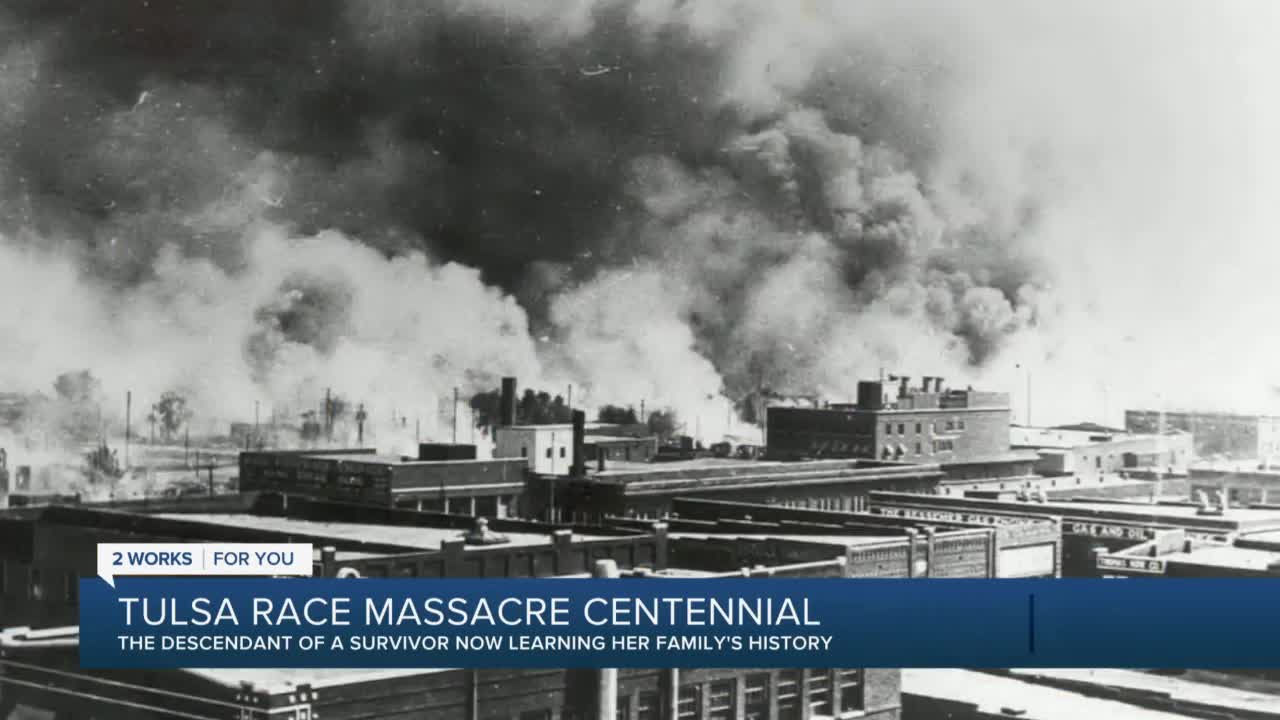TULSA, Okla. — For decades, the 1921 Tulsa Race Massacre wasn't always talked about in schools.
As Tulsa approaches the race massacre's centennial next week, there is one descendant of a survivor who is now learning about her true family history.
“My name is Brenda Nails-Alford,” said Nails-Alford, a descendant of race massacre survivors. She knows the history of her family business.
“My grandparents, James and Vasanor Nails Sr., along with my great uncle Henry Nails. were the proud owners of the Nails Brother’s shoe shop and record shop, located at 121 North Greenwood Avenue," she said.
A letter she received is rewriting the history she knew growing up.
“I read that letter five times and wondering to myself, why was I receiving it and what exactly did it mean," Nails-Alford recalled.
Nails-Alford calls her childhood normal, surrounded by everything she and her family needed.
“Just living off Greenwood was an exceptional experience for a little kid,” said Nails-Alford. "There was an ice cream parlor that we went to some times after church. There were drug store right around the corner, jewelry stores, barbeque restaurants, soul food restaurants.”
Nails-Alford said while growing up academics topped all priorities. But the lessons outside the classroom about the history of her neighborhood stuck with Nais-Alford the most.
“The call of the community was to get your education and to do your best and be your best and be respectful," Nails-Alford mentioned. “My sister and I had this thing about we like to sit under the dining room table and listen to grown folks conversations as little kids.”
Eventually, the table talk and the history stories stopped.
“As time went on, no one really talked about it anymore, and it kind of just faded away.”
In the 1960s, the once vibrant Greenwood community Nails-Alford knew was down brick-by-brick, making room for new business and roads.
“There was urban renewal or removal as some of our community members would call it.”
After receiving the letter in 2003, it changed Nails-Alford's life. It was then when she knew that table talk and history stories was about her family.
“Myself and many others, were being included in a lawsuit against the City of Tulsa for survivors and the descendants of survivors of the 1921 race massacre," said Nails-Alford. “I realized stories that I had heard as a little girl, were actually stories of the race massacre.”
They were stories about her grandmother and about a cemetery her family passed almost every day.
“I always knew that my grandmother had to hide in a church, but I never knew why. When we would pass by Oaklawn Cemetery, the old folks in the car would say, you know they’re still over there. And everybody in the car would agree.”
Nails-Alford researched how her family was impacted by the race massacre and came across a book. It wasn't until 2020 that she realized the woman in this picture on the back of the truck, was her great-grandmother, Roseatter Moore.
Now, she says it's up to all of us to learn history's lessons so they won't be forgotten.
“It’s up to us, the generations to come after, to be our best and to do our best to move forward in this life, as best we can,” said Nails-Alford.
Trending Stories:
- President Biden visiting Tulsa for Race Massacre centennial
- DOWNLOAD the 2 Works for You app for alerts
- Tribes working with Okmulgee to recover from the pandemic
- FOLLOW 2 Works for You on Facebook
- Puppies valued at +$25,000 stolen from Petland Tulsa
Stay in touch with us anytime, anywhere --
- Download our free app for Apple, Android and Kindle devices.
- Sign up for daily newsletters emailed to you
- Like us on Facebook
- Follow us on Instagram
- Follow us on Twitter





